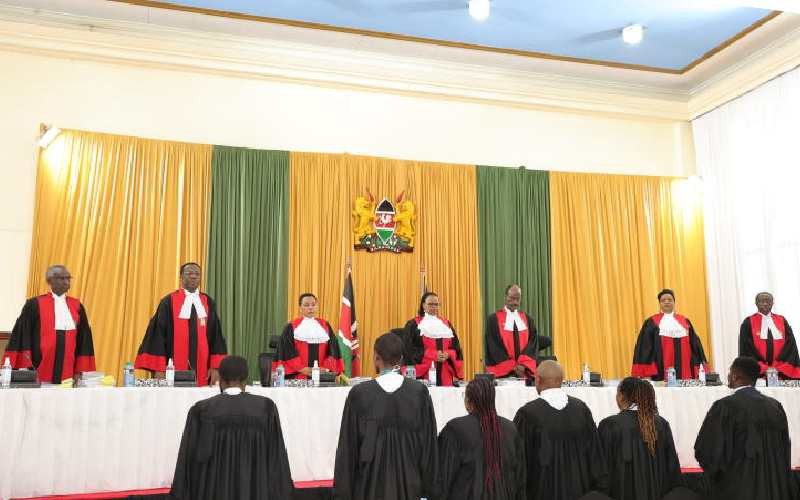
Supreme court judges at Milimani court buildings on Wednesday, August 31, 2022. [Collins Kweyu, Standard]
Some litigants and lawyers are aggrieved by the language in the abridged judgment of the Supreme Court in the 2022 presidential election petitions. They contend that the Supreme Court unjustifiably or wrongfully used intemperate language incompatible with its hallowed status and constitutional mandate as a neutral arbiter of presidential election disputes. Relatedly, the disaffected litigants and lawyers contend that the Supreme Court's language betrays hostility, bias and prejudice against the petitioners. The grievances revolve around the description of the petitioners' cases as "hot air" and "wild goose chase" and strong criticism of the disaffected litigants and lawyers for presenting cases founded on blatant falsehoods, outright forgeries and distortion of facts.